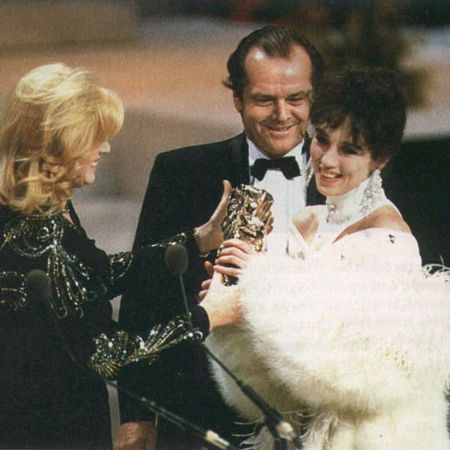 | Bearing a distinctive dark-haired, porcelain-skin beauty that lent itself to the tragic heroines she frequently played, Isabelle Adjani became one of France's biggest and most acclaimed stars in the '80s, winning four Cesars between 1981 and 1994. Of Algerian and German parentage, Adjani was born in Gennevillier (near Paris) on June 27, 1955. She grew up loving poetry and theater, and began acting in amateur stage productions at the age of 12 after winning a school recitation prize. Two years later, she made her film debut in 1970's Le Petit Bougnat while on summer vacation. |
Her second film, Faustine et le Bel Ete (1972), was also made while she was still in school. At the age of 17, Adjani was permitted to join the prestigious Comedie Francaise, where she drew excellent audience and critical response performing the classics. She signed a 20-year contract with the troupe, which she broke a short time later to pursue her film career, and the resulting controversy was be the first of many.
In 1974, the young actress appeared in La Gifle and won the prestigious Prix Suzanne Bianchetti for Most Promising Actress. She became a bona fide star the following year, after director Franois Truffaut cast her as the tormented daughter of Victor Hugo in L'Histoire d'Adele H. The Story of Adele H., which earned her an Oscar nomination and worldwide acclaim. Many French critics, in particular, enthused over her performance, comparing her with the legendary Jeanne Moreau. Further acclaim greeted Adjani in 1981, when she won the Best Actress award at the Cannes Film Festival for her performances in Possession and Quartet, as well as her first Cesar for the former film.

With the release of L'Ete Meurtrier in 1983, Adjani garnered both her second Cesar and another helping of controversy. Although the film was a box-office hit and created many new fans for the actress, Adjani declined to behave in the manner expected of a movie star; she refused to allow herself to be photographed by the press at Cannes, and avoided interviews and press conferences. She received particular praise for her work in the title role of Camille Claudel (1988), directed by her former longtime companion (and father of one of her sons) Bruno Nuytten; it was also the first film that she produced herself. Adjani won an Oscar nomination and her third Cesar for her performance as the tragic heroine, but she caused more controversy during her Cesar acceptance speech by reading aloud from Salman Rushdie's -The Satanic Verses.
More acclaim and less controversy followed for the actress in 1994, when she won her fourth Cesar for her portrayal of the title character in La Reine Margot. A subsequent -- and uncharacteristic -- Hollywood outing, the 1996 remake of Diabolique, proved a disappointment, and, for the next couple of years, Adjani receded from view. However, she was no less respected in her homeland, where she was appointed president of the 50th Cannes Film Festival in 1997.
She also continued to be highly visible on the political scene, staunchly supporting Algerian rebel activities and actively fighting racism against North African immigrants (such as her father) in France. She was particularly outspoken concerning the activities of the French National Front. In 1986, the anti-immigration group organized a smear campaign against her, starting rumors that she was dying of AIDS. This actually resulted in newspaper reports of Adjani's death, which caused her to go on national television to prove that she was, in fact, still alive.


































